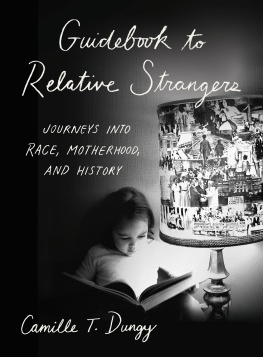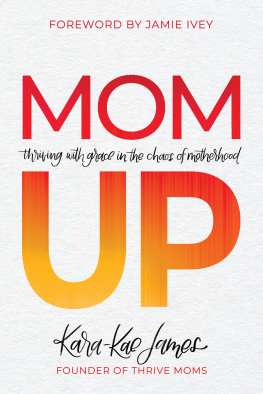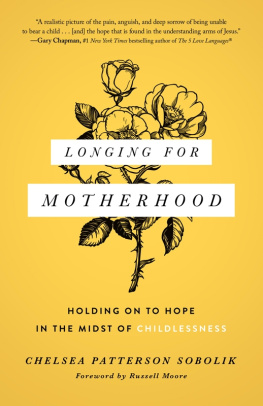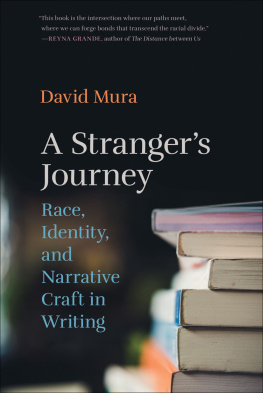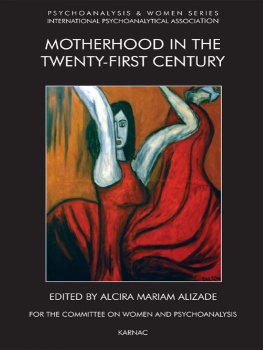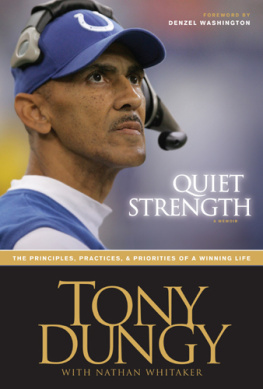Dungy C.T. - Guidebook to Relative Strangers: Journeys into Race, Motherhood, and History
Here you can read online Dungy C.T. - Guidebook to Relative Strangers: Journeys into Race, Motherhood, and History full text of the book (entire story) in english for free. Download pdf and epub, get meaning, cover and reviews about this ebook. year: 2017, publisher: W. W. Norton & Co., genre: Art. Description of the work, (preface) as well as reviews are available. Best literature library LitArk.com created for fans of good reading and offers a wide selection of genres:
Romance novel
Science fiction
Adventure
Detective
Science
History
Home and family
Prose
Art
Politics
Computer
Non-fiction
Religion
Business
Children
Humor
Choose a favorite category and find really read worthwhile books. Enjoy immersion in the world of imagination, feel the emotions of the characters or learn something new for yourself, make an fascinating discovery.
Guidebook to Relative Strangers: Journeys into Race, Motherhood, and History: summary, description and annotation
We offer to read an annotation, description, summary or preface (depends on what the author of the book "Guidebook to Relative Strangers: Journeys into Race, Motherhood, and History" wrote himself). If you haven't found the necessary information about the book — write in the comments, we will try to find it.
Dungy C.T.: author's other books
Who wrote Guidebook to Relative Strangers: Journeys into Race, Motherhood, and History? Find out the surname, the name of the author of the book and a list of all author's works by series.
Guidebook to Relative Strangers: Journeys into Race, Motherhood, and History — read online for free the complete book (whole text) full work
Below is the text of the book, divided by pages. System saving the place of the last page read, allows you to conveniently read the book "Guidebook to Relative Strangers: Journeys into Race, Motherhood, and History" online for free, without having to search again every time where you left off. Put a bookmark, and you can go to the page where you finished reading at any time.
Font size:
Interval:
Bookmark:

GUIDEBOOK
TO RELATIVE
STRANGERS
JOURNEYS INTO RACE,
MOTHERHOOD, AND HISTORY
CAMILLE T. DUNGY

W. W. NORTON & COMPANY
Independent Publishers Since 1923
New York | London
ALSO BY CAMILLE DUNGY
Trophic Cascade
Smith Blue
Suck on the Marrow
What to Eat, What to Drink, What to Leave for Poison
Black Nature: Four Centuries of African American
Nature Poetry, editor
From the Fishouse: An Anthology of Poems that Sing, Rhyme,
Resound, Syncopate, Alliterate, and Just Plain Sound Great,
coeditor with Matt ODonnell and Jeffrey Thomson
Gathering Ground: A Reader Celebrating Cave Canems
First Decade, assistant editor
For Callie. Now, always.
And for our fellow travelers.
Copyright 2017 by Camille T. Dungy
A Brief History of Near and Actual Losses by Camille Dungy. Copyright 2014 by
Camille Dungy. Originally published in the Summer 2015 issue of Virginia Quarterly
Review Reprinted by permission of Georges Borchardt, Inc., on behalf of the author.
All rights reserved
First Edition
For information about permission to reproduce selections from this book,
write to Permissions, W. W. Norton & Company, Inc.,
500 Fifth Avenue, New York, NY 10110
For information about special discounts for bulk purchases, please contact
W. W. Norton Special Sales at specialsales@wwnorton.com or 800-233-4830
Book design by Chris Welch
Production manager: Julia Druskin
JACKET DESIGN BY JOAN WONG
JACKET PHOTOGRAPH BY CLIFTON HENRI
ISBN: 978-0-393-25375-7
ISBN 978-0-393-25376-4 (e-book)
W. W. Norton & Company, Inc.
500 Fifth Avenue, New York, N.Y. 10110
www.wwnorton.com
W. W. Norton & Company Ltd.
15 Carlisle Street, London W1D 3BS
WHEN THE NATION that became the United States was beginning, women writers and black writers needed the endorsement of other people in order to prove their legitimacy. Anne Bradstreet, the first woman writer to publish a book out of the American colonies, opened said book with testimonials from the property-owning white men in whom her readers were bound to believe. One of the stipulations surrounding the only book ever published by the American colonies first black woman poet, Phillis Wheatley, was that the frontispiece must feature the clarifying label Negro Servant to Mr. John Wheatley of Boston. And so it did. Expected of Frederick Douglass, Harriet Jacobs, William Wells Brownall key writers of the abolitionist periodwere what we have come to call authenticating documents attached to their books. The essays in the book you are reading are steeped in such history.
I resist the implication that my own merits are not enough to prove the worth of my words. Yet, I want to thank Jon Peede, Kathryn Miles, Lucy Anderton, Sean Hill, Anna Lena Phillips Bell, Emily Smith, Jean Hegland, Lauren Crux, Tayari Jones, Dr. Lawrence Kaplan, and Dr. Nora McNamara. Your advocacy and attention helped move this book out of my study and onto the shelves. I owe a debt of gratitude to you, and also to Samantha Shea of Georges Borchardt, Inc., and Alane Mason of W. W. Norton.
This book was lifetimes in its production. A complete accounting of those who have aided and encouraged me seems an impossibleand improbabletask. Thank you to the late Mrs. Mudan, director of Foothill Montessori preschool, who taught me that I might be interested in many things at once and yet remain focused. Thank you to Mrs. Nichols, who, when I was in the seventh grade and smarter than a black girl was expected to be and, possibly for this reason, sometimes as disruptive as the literature allows, set me up as the teachers assistant in our Honors English class rather than send me to the office. Thank you to Scott, the plainclothes security guard at University High who once lent me a copy of The Autobiography of Malcolm X. I can no longer recall what prompted his offering beyond the fact that we both enjoyed spending the lunch hour in proximity of the same shade tree. The book he gave me, I soon discovered, had been on my parents shelves all along. Thank you to my parents and their bookshelves, my grandparents and their bookshelves, their parents and their bookshelves. It was no small thing to grow up knowing there was a body of literature that belonged to me.
Thank you to the sunset and the sunrise. I am not writing this superfluously. There are too many of us who do not have the chance to see them.
Thank you to the people who made it clear that they hated me. Thank you to the people who made of themselves examples of the ways that, in the face of such anger, I could proceed.
This book is written toward a better understanding of moments when I haveand also have notfelt at home. Travel, like motherhood, calls my attention more acutely to new worlds I encounter and those I have left behind. Thank you to all who have welcomed me during my travels. I cannot name you all, for I am abundantly blessed.
Thank you Ben and Carolyn Van Zante, Bill Ford, Tammi Russell, Scott Cardwell, Rebecca Brown, and Laura-Gray Street. Thank you Priscilla Virant, Dr. Gerald McIntosh, and Sara Schaefer. Thank you Catherine Brady, Valerie Miner, Tess Taylor, Aimee Phan, Patricia Powell, Bich Nguyen, Xochiquetzal Candelaria, and Toni Mirosevich, who were there from the start.
Thank you to our neighbors, who sometimes plow the snow from our walk.
Thanks to everyone who aided me on the mountain.
Thank you to Nana Mary Quintela, Angharad Jones, Shannon Graham and Carlos DeLeon, Emily Bruce, Carrie Leilam Love, Matthew DeCoster, Charlene Hall, Rhowen Dalrymple, Barbara and Gene Ferguson, Papa Joe and Mama Maria, Misty and Mary, Allison and Alyssa, Ms. Shusta, Mrs. Tibbs, Mrs. Kalli Gladu, Dr. Giles, all the unnamed sitters and teachers, and Cole. The essays in this bookand, beyond the book, my whole life as a motherwould read quite differently without you. If you care for children, my child especially, you have my gratitude.
Thank you to Colorado State University, San Francisco State University, Randolph-Macon Womans College (now Randolph College), the University of North Carolina at Greensboro, and Stanford University, the institutions where I have taught and learned. Thank you to all the colleges, universities, high schools, libraries, and other institutions that have invited me onto their campuses. Thank you to the Hermitage Artist Retreat, the Virginia Center for the Creative Arts, the Norton Island Eastern Frontier Society, the Sustainable Arts Foundation, the National Endowment for the Arts Fellowship Program, Ragdale, the Rocky Mountain National Park Artist-in-Residence Program, Blue Mountain Center, and the Djerassi Resident Artists Program. Thanks to Chris Merrill and the University of Iowa/U.S. State Department Outreach Tour, to Anthony Deaton and the U.S. State Department Speaker and Specialist Program, and to 49 Writers. Thank you Centrum, the Minnesota Northwoods Writers Conference, the Mendocino Coast Writers Conference, the Furious Flower Poetry Conference, Yari Yari Ntoaso, the Dodge Poetry Festival, Bread Loaf, the Bread Loaf Orion Environmental Writers Conference, the Napa Valley Writers Conference, Cave Canem, and Yaddo. If you are in any way responsible for making a haven for artists, thank you.
Thank you to all of the editors of the journals and anthologies who first accepted or encouraged these essays: Virginia Quarterly Review, New England Review
Next pageFont size:
Interval:
Bookmark:
Similar books «Guidebook to Relative Strangers: Journeys into Race, Motherhood, and History»
Look at similar books to Guidebook to Relative Strangers: Journeys into Race, Motherhood, and History. We have selected literature similar in name and meaning in the hope of providing readers with more options to find new, interesting, not yet read works.
Discussion, reviews of the book Guidebook to Relative Strangers: Journeys into Race, Motherhood, and History and just readers' own opinions. Leave your comments, write what you think about the work, its meaning or the main characters. Specify what exactly you liked and what you didn't like, and why you think so.

